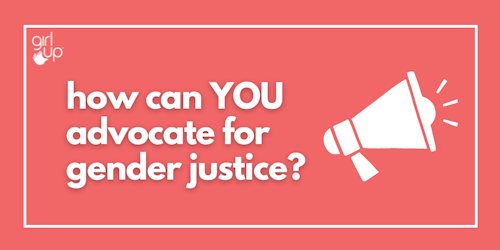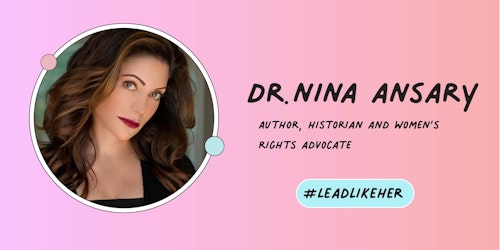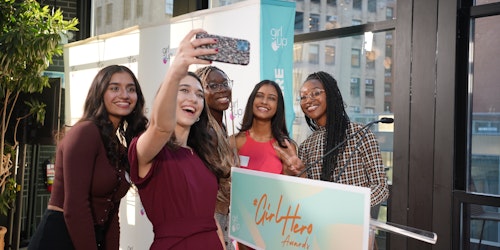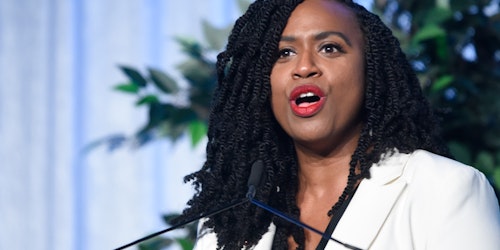Estimated reading time: 5 minutes
To commemorate Women’s History Month, we celebrate and highlight legendary leaders from around the world who led with courage, expanded the rights of others and shaped history to be more inclusive. Throughout the annals of history, countless women have made significant contributions, yet far too often, their stories have been overshadowed and their names forgotten.
Distinguished for their strength, determination, resilience and innovative spirit, the three exemplary women profiled this month were born before 1900, when opportunities were even more limited for women than they are today. Shinning a light on these incredible women who fearlessly defied societal “norms” and challenged the status quo is of crucial importance in a world, where despite tremendous advancement, we continue the arduous journey toward equal rights and opportunities.
It is disheartening to say the least, that despite their notable accomplishments in practically every field, women occupy a mere 0.5% of recorded history – remarkable women who worked under extraordinarily difficult circumstances and have yet to receive the recognition they rightly deserve. Civil rights activist Marian Wright Edelman once said, “you can’t be what you can’t see.”
Amplifying these courageous female trailblazers and exemplary role models, is not only a moral imperative but also a significant component of inspiring and empowering future generations to envision and to create their own narrative.
Charlotte Maxeke (1874-1939)
South African advocate and leader of the liberation struggle
Charlotte Maxeke was born forty-three years before the revered Nelson Mandela, and her accomplishments paved the way not only for the momentous political changes in South Africa, but also for the country’s first women’s movement. Yet she has long been written out of history and pushed aside in practically every official school and university curricula. Charlotte devoted her life to uplifting and empowering black South Africans and in 1918, founded the Bantu Women’s League (BWL), a predecessor of the African National Congress Women’s League (ANC), which focused on raising awareness of how South Africa’s “pass laws,” an internal passport system and symbol of oppression that segregated the population, affected the country’s black women. Maxeke’s advocacy for social change, commitment to crafting an inclusive society, and demands for women’s freedom of mobility and fair pay were founded on her long-held principles extolling social justice and women’s rights, making her a pioneer in one of the greatest human causes in history.
“This work is not for yourselves. Kill that spirit of ‘self,’ and do not live above your people but live with them. If you can rise, bring someone with you… and love one another as brothers and sisters.”
Bibi Khanum Astarabadi (1858-1921)
Iranian author of the first declaration of women’s rights in the history of modern Iran and advocate of universal education for girls
Sometimes the most powerful statements of protest are uttered with an incisive sense of satire and wit. The Vices of Men can certainly be counted among such rebellious proclamations.
Written in 1895 by Bibi Khanum Astarabadi, one of the earliest pioneers of women’s rights in Iran, The Vices of Men was a bold and critical response to the anonymously written book The Education of Women published in1887. Considered to be the first declaration of women’s rights in the history of modern Iran, Bibi’s book was a satirical rejoinder to the “nonsensical argument” put forth by the author to justify the slavish subservience of women in Iranian society. Although anonymous, it was rumored to have been written by a man in response to the women challenging traditional notions of “womanhood” in society. Railing against the author’s patronizing views toward women, she referred to him as “this evil-natured man” challenging his “senseless” and “unrealistic criticism” in an unprecedented and audacious manner.
It was Bibi’s firm belief that education was the only way to combat entrenched misogynistic values and to ensure that girls and women develop their true potential. In 1907, she founded the progressive elementary School for Girls, which faced hostility and was labeled by clerics as a “center for prostitution.” Today, girls in Iran owe Bibi a huge debt of gratitude for her leadership and pioneering role on the seemingly impossible task of setting up a school for girls in a reactionary society where women had no presence in public life and enjoyed few rights, if any. Without a doubt, her aspirations still resonate with the courageous women and girls in Iran today leading the “Woman. Life. Freedom” uprisings and it is more than likely that Bibi would advise them to “keep up the fight.”
Olympes de Gouges (1784-1793)
French playwright and social reformer
It wasn’t until 1944 that the French government allowed women the right to vote. But more than 150 years prior, a French woman was ardently advocating for women’s rights and she paid dearly for her courageous advocacy.
In 1791, playwright Olympes de Gouges wrote one of the defining manifestos championing equal rights for women: The Declaration of the Rights of Women and the Female Citizen. It was a response to The Declaration of the Rights of Man and of the Citizen written in 1789, which became the preamble to the French Constitution in 1971. Forceful and sarcastic in tone and militant in spirit, her document took up each of the seventeen Articles of the Preamble to the Constitution, highlighting and boldly questioning the glaring omission of women within each article “Man, are you capable of being just? It is a woman who poses the question; you will not deprive her of that right at least. Tell me, what gives you sovereign empire to oppress my sex?”
Tell me, what gives you sovereign empire to oppress my sex?”
Olmype de Gouge’s lifetime of boldly advocating for women and other marginalized groups ultimately led to her death. In November 1793, just two years after the publication of her landmark document, she was tried and found guilty of treason, and was subsequently put to death by guillotine.
Olympe was a legendary freedom fighter who saw injustice and discrimination in society and wasn’t afraid to criticize her country. Her bravery and candor cost her her life, but her words serve as a call to action even today, inspiring us to fight against inequality.
To discover more Legends of Leadership, follow Girl Up on Instagram, Facebook, LinkedIn, and TikTok as we amplify the stories of historical female heroes all March long.
Dr. Nina Ansary is an award-winning Iranian-American author, historian and women’s rights advocate. She is the director of the Cambridge Middle East and North Africa Forum Women’s Leadership Initiative at the University of Cambridge, former visiting fellow at the London School of Economics Centre for Women, Peace and Security, and former director of the World Affairs Councils of America Global Women’s Lecture Series.
Her best-selling books Jewels of Allah: The Untold Story of Women in Iran and Anonymous Is a Woman: A Global Chronicle of Gender Inequality garnered numerous awards – including the International Book Award in “Women’s Issues” and the Benjamin Franklin Book Award in “History” and “Interior Design.”
Nina is the recipient of the Ellis Island Medal of Honor, the Columbia University Graduate School of Arts and Sciences Outstanding Alumni Award, and the Barnard College, Columbia University Trailblazer Award.
She has appeared on CNN International, Fox News, Larry King, the Today Show, the BBC, Sky News and been featured in a variety of publications, including Newsweek, Maria Shriver’s The Sunday Paper, The Los Angeles Times, The UK Daily Telegraph, Teen Vogue and the Yale Journal of International Affairs. She has written for Time, HuffPost and The Daily Beast andpresented her work at multilateral conferences, the Carnegie Endowment for International Peace, the Georgetown Institute for Women, Peace and Security, the United States Senate Human Rights Caucus, Girl Up Leadership Summit, the London School of Economics, and at Columbia, Harvard, Oxford, and Cambridge Universities.
Nina was born in Tehran and moved with her family to the United States after the 1979 Revolution in Iran. She grew up in New York City and received her Master of Arts in Middle Eastern, South Asian and African Studies and PhD in History from Columbia University. She serves on the Board of Trustees of the Iranian American Women Foundation and the Board of Advisors of the Cambridge Middle East and North Africa Forum at the University of Cambridge. Learn more at ninaansary.com








